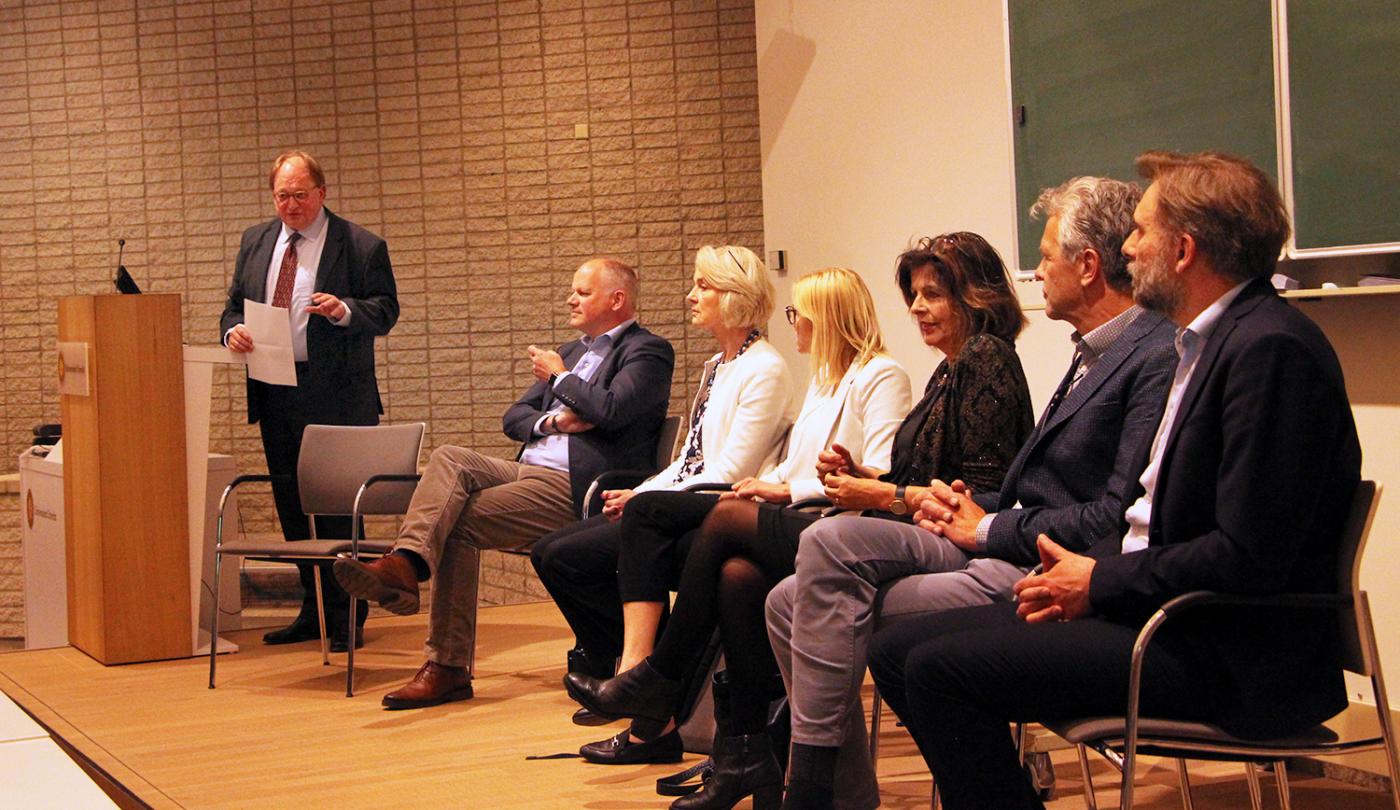Critical committee ultimately positive about Utrecht quality plans

Are the quality agreements made by Utrecht University for the use of the resources released by the abolition of the basic grant in order? And were students and teachers sufficiently involved in the choices that the university made for improving education?
These were questions to which a panel, chaired by Leiden professor Ton van Haaften, sought answers in Utrecht on Wednesday. To this end, the panel members held discussions with the university board, the Supervisory Board and with representatives of university participation. Directors, employees and students of the Humanities, Social Sciences and REBO faculties were also consulted.
On Wednesday afternoon, chairman Van Haaften indicated during a concluding presentation that the panel had come to a positive advice. “But you didn’t make it easy for us,” he added. The most important objection of the panel was that many plans are unclear about how the university will monitor that they will actually have an effect.
More and better teachers
The panel must inform the Dutch Flemish Accreditation Organization (“NVAO”) on whether the UU meets the requirement to make sound quality agreements within its own institution and thus can qualify for study advance funds. NVAO has established three criteria for this. If a university meets this requirement, the educational inspector may give a positive advice to the minister.
The UU can claim an amount that will rise from 9 million to 27 million between 2019 and 2024. The university board decided to add another 5.6 million themselves for the next two years. The university wants to use the money primarily for more intensive and small-scale education, further professionalization and more and better supervision of students, including students from disadvantaged positions. The faculties drew up plans for this: the science faculty wants to appoint super teaching assistants, for example. DUB has previously made an overview of the faculty plans.
Great time pressure
According to Van Haaften, the panel had few comments on the choices made. According to him, the plans are reasonable and contribute to quality improvement. There was greater doubt about the involvement of students in drawing up the plans. During the conversations it was established that this had been accompanied by some “hick-ups”.
The process had taken place in Utrecht under great time pressure. An important reason for this was that the university administration waited too long before taking action. One consequence was that not all faculties succeeded in actually consulting all students. This was reflected, among other things, in the criticism of the plans of the economics students and later also those of the University College students.
As things had gone well in many other areas and the administrators had listened seriously to the comments made by students, the panel ultimately found that the UU scored satisfactorily on this point. The university was recommended to pay more attention to the involvement of students up to the level of the program committees in further elaboration of the plans.
More concrete and explicit
The panel faced the biggest problems with the third criterion of the NVAO. Are the plans realistic? Can the university be sure that the plans will have the intended effect? And how will the university monitor that? In the written report that the university had sent to the panel, this aspect was still insufficiently explained, Van Haaften stated. “But the discussions with the three faculties in particular convinced us that attention is being paid to this at faculty level.”
Nevertheless, Van Haaften advised the university to be more explicit in its plans on what the yield should be and how the university wants to measure this. According to the panel chair, this was not only important for possible future visits of new committees. It will also benefit future generations of student participation scientists who have to judge the quality agreements.